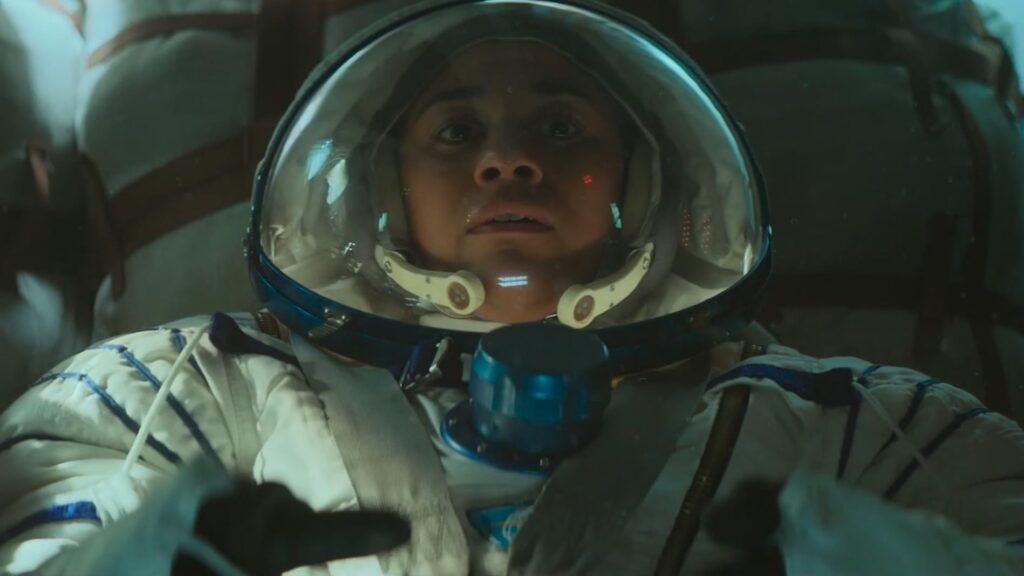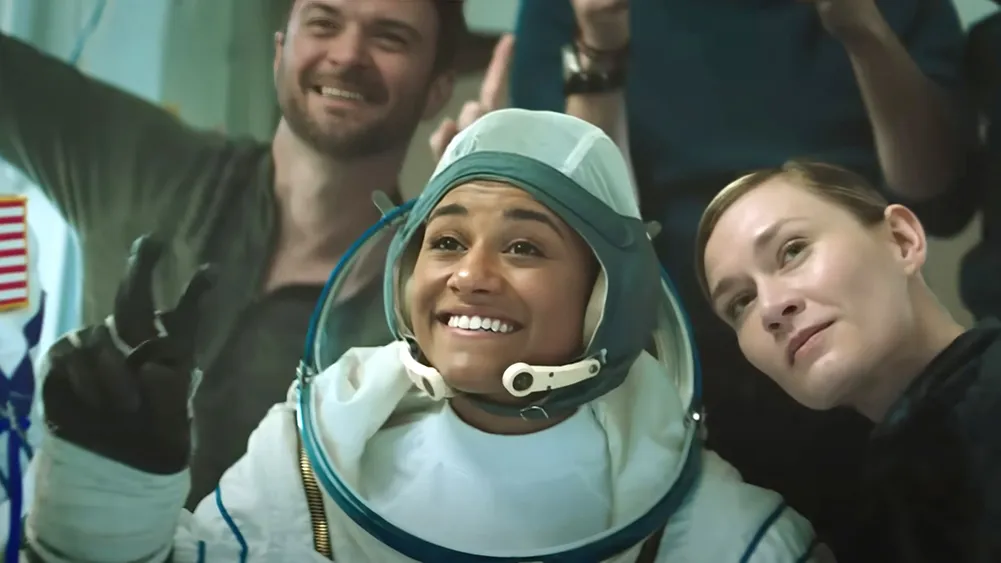‘I.S.S.’: A Promising Orbit That Fizzles Out

Despite its setting entirely in orbit, ‘I.S.S.’ takes a grounded approach, exploring the intersection of personal and political dynamics, reminiscent of ‘For All Mankind.’ However, the film, set in today’s world, struggles to fully capitalize on its intriguing and plausible scenario, leaving viewers wanting more from a dramatic standpoint.
The story kicks off with the introduction of Dr. Kira Foster, played by the talented Ariana DeBose, as she joins the International Space Station alongside a diverse crew of American and Russian astronauts. The cast, featuring Chris Messina and John Gallagher Jr. among others, delivers exceptional performances, making the viewer’s time in space genuinely enjoyable. The initial camaraderie reflects the symbolic international cooperation of the real-life space station, seemingly detached from geopolitical tensions.

Director Gabriela Cowperthwaite, who shares a generational connection to the film’s soundtrack, skillfully captures the hope embodied by the classic power ballad ‘Winds of Change’ during a space station celebration. However, this hope takes a dark turn as the astronauts witness nuclear detonations and ensuing firestorms on Earth. Cowperthwaite tactfully conveys the shock and denial experienced by the characters, creating a tense and poignant atmosphere.
Unfortunately, I.S.S. struggles to maintain its focus and direction after this pivotal moment. First-time screenwriter Nick Shafir grapples with navigating the personal and political aspects of the story, leading to a descent into predictable and uninspiring territory. The narrative, attempting to explore the clash between apolitical scientists forced into a military conflict, loses its impact and falls into mundane zero-gravity fisticuffs.

While the film excels in portraying the magic and beauty of real-life space exploration, it falls short of embracing the imaginative possibilities inherent in science fiction. ‘I.S.S.’ could just as easily have been set in an Earth-based facility, missing an opportunity to delve into creative solutions to human challenges. Despite its convincing zero-gravity effects and visually stunning scenes, the film fails to elevate itself beyond the ordinary.
In the end, ‘I.S.S.’ leaves audiences craving a more thoughtful and inventive exploration of human possibilities. Its reluctance to push the boundaries of conventional storytelling results in a film that, despite its initial promise, becomes a quickly forgettable experience.








